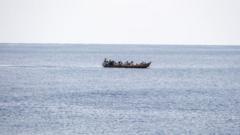Due to the restrictions during the coronavirus pandemic, the numbers for this January are not comparable with previous years. Russia lifted COVID-19 limitations in mid-July last year, and especially during autumn, the number of border crossers to Norway got a boost.
In late September, Finland decided to follow Poland and the Baltic states by declaring Russians traveling on a tourist visa unwanted. Consequently, the road from Murmansk to Norway in the north became the only land border to Schengen-Europe still open for tourist visa travelers.
“The numbers from January show there were 9,271 crossings at Storskog,” writes border officer Katrina Beddari with the Police in Finnmark in an email to the Barents Observer.
She adds that 94 crossings were made by people holding the so-called visa-free permit, an arrangement allowing for locals living within 30 km distance from the Norwegian-Russian border to visit the other side without a visa.
The increase is 33 percent compared with October and November (.6,943 and 6,941 respectively), the two first months after Finland restricted entry for Russian citizens.
Russians with a Schengen tourist visa can still fly to many European destinations, but the route north via Kirkenes is for the most much cheaper than flying via popular hubs like Dubai or Istanbul.
January is also peak season for Russian fishing vessels to make port call for crew changes in Kirkenes, one of the three remaining harbors in Northern Norway still open for Russian-flagged vessels.
Fishermen from Murmansk and the Far East are shuttled by bus across the border to and from Norwegian ports.
Kirkenes port in Northern Norway is packed with Russian fishing vessels this winter. Photo: Thomas Nilsen
Visiting Norway’s border with Russia earlier this autumn, Minister of Justice Emilie Enger Mehl made clear that all changes in traffic are closely monitored.
“Border can be closed in a few hours’ notice, Mehl said to the Barents Observer.

 1 year ago
20
1 year ago
20


